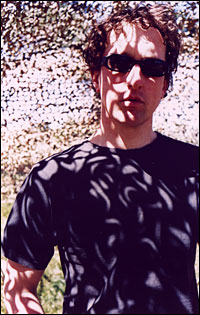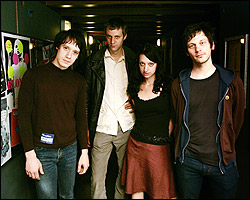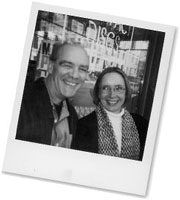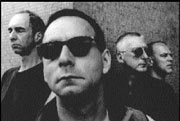AS A YOUNG CHILD, David Kilgour collected cigarette packets. As a teenager, he dreamed of being a famous artist. While he still paints, Kilgour’s traded in the trash habit for more sensible hobbies like gardening and surfing in his native New Zealand. And, of course, he’s always got that band thing.
“I still pinch myself! I wonder how long it can go on,” Kilgour, 41, says of his long-running career in rock ‘n’ roll. Other habits come and go, but making music has proven the one constant in Kilgour’s life. Even as lineups have changed and new groups have formed where old ones decided to call it quits (and then re-formed when they changed their minds), Kilgour has stood in front, playing tough, jangling guitar lines and fitting in lyrics about art school, aging, and tallying ho. Seminal pop band the Clean, for which Kilgour is most widely known, put out their first EP in ’81the coughing, cursive, and practically perfect Boodle Boodle Boodle. Two decades later, full-length Getaway (Merge) was every bit as urgent, acerbic, and exceptional. The Clean may not have stayed together for all of those 20 years, but the group has always remained relevant. I exchanged a few e-mails with Kilgour and tried to figure out how they’ve managed to do it.
Seattle Weekly: How do youth and maturity figure into songwriting? What was it like to write songs as a young man, and what’s it like now?
David Kilgour: Well, the songs come a little slowerI’ve gotta work harder as I get older. I used to rely on flashes of inspiration when I was younger, along with just plain old hard work. As the years went by, I realized I had to start working at it every day, even if I wasn’t in the mood. I’m not more confident in regards to songwriting, less so if anything. There’s probably more editing these days.
With all the band breakups, side projects, and solo efforts, I would expect there were some hurt feelings and bruised egos here and there?
Probably! The Clean has lasted as a part-time entity because we still enjoy it, full stop, especially the creation of new music. Collaboration is kind of competitive, and egos do get hurt. A band is like any marriage, reallyit takes work.
I’m kind of obsessed with brothers in bands. Like the Replacements, the Kinks, and Half Japanese (and a dozen others), the Clean contains a set. What’s it been like playing with your brother, Hamish, all these years?
Hamish and I can have an almost telepathic relationship when playing live, which is very helpful with the Clean ’cause we jam quite a lot when playing.
I’ve always read that the Velvet Underground were your main influence. Would you agree with that, and have you ever had the opportunity to meet Lou Reed?
The Velvets were an influence, but hardly the main influence. I adored them in the late ’70s, and their guitar/drum style certainly gave us direction. Hamish met Lou at a party once. I’ve met lots of interesting people over the years, but not many icons like him.
Have you had to have side careers over the yearsjobs to keep you busy or help you get the rent in?
Is window cleaning a career [six months in the early ’80s]? Co-running an arts co-op in the late ’80s, six months in a record store. . . . Oh, yeah, and I worked as a photolithographer for about six months in the late ’80s, too.
Have you achieved your dream level of success, or are there more milestones you’d like to get to in order that you might feel you’ve really completed your life’s work?
To survive off the music has been the main goal. I gave up thinking I’d ever be rich off music many years ago. I’ve had two silly dreams since I was a kid: one to play at the Royal Albert Hall, and the other for Phil Spector to produce a song. And, funnily enough, I kinda had an opportunity to support Lambchop at the Albert Hall but had to turn it down!








